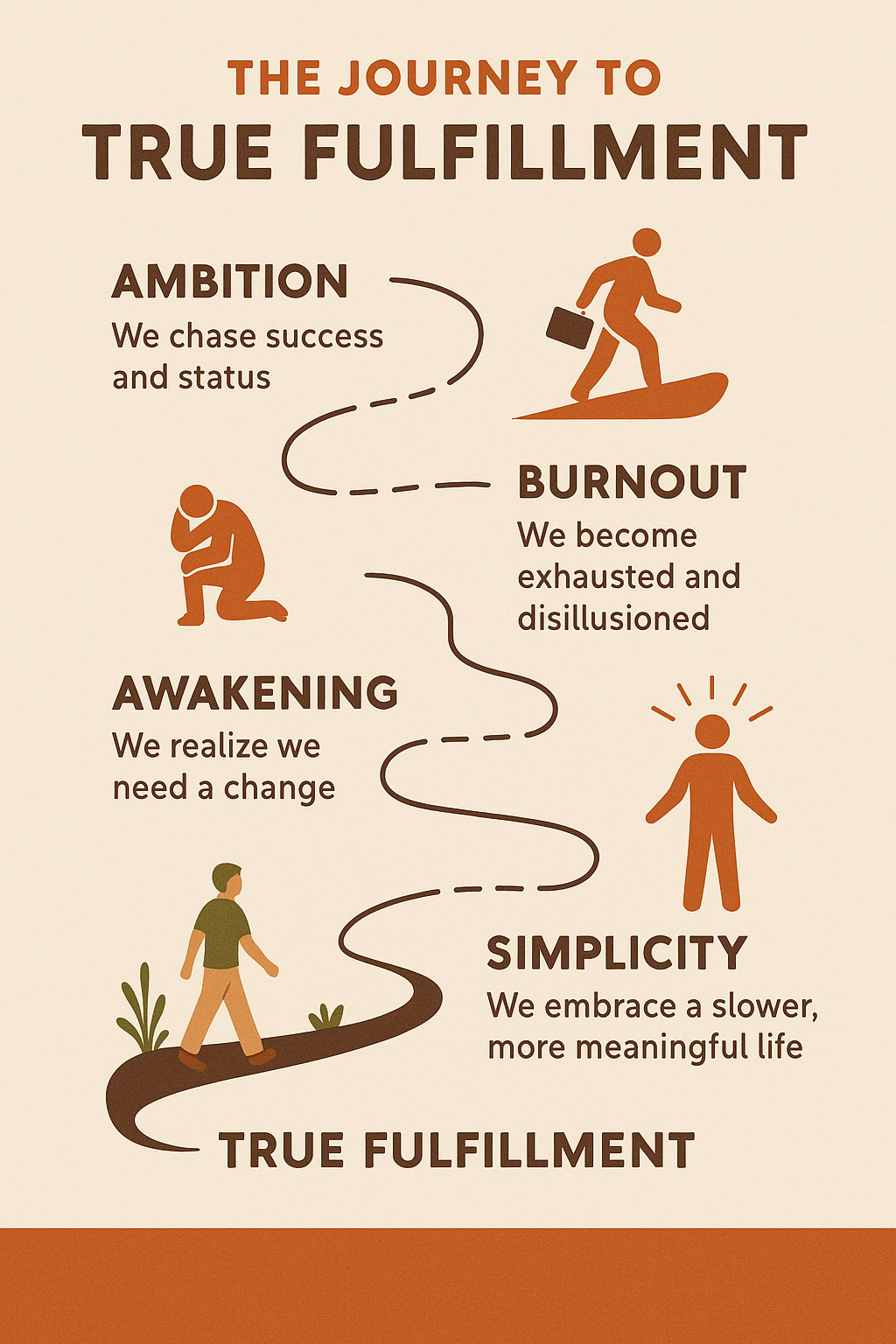In the movie Days of Thunder, a brief yet profound moment captures a truth many people only discover later in life. A character reflects:
“When I grew up, all I wanted to do was work on race cars. Now all I want to do is make enough money to work on a farm.” – Rowdy Burns
At first glance, it’s a simple statement. But when explored more deeply, it reveals a common paradox of human development — the journey from ambition to simplicity, from outer achievement to inner fulfillment.
Youthful Aspirations: Speed, Power, and Glamour
When we are young, we are often captivated by glamour, excitement, and competition.
- We associate success with adrenaline, speed, money, fame, and recognition.
- We chase external achievements that validate our worth to the world.
- Cultural conditioning and societal messaging tell us that being someone means having trophies, titles, or public victories.
In this youthful stage, ego often drives our goals. Life is a race, and winning is everything.
The Maturation of the Soul: A Shift in Values
As people age and gain experience, many come to realize:
- External victories are hollow if not rooted in internal peace.
- Noise and constant motion are not the same as meaningful progress.
- Material success often leaves a deep yearning for authenticity, rootedness, and simplicity.
The soul matures and craves principle-centered living — focusing on things that are timeless:
- Relationships
- Integrity
- Connection to nature
- Stewardship of land and community
- A slower, richer life centered around service and meaning
The farm, once dismissed as “boring” or “old-fashioned,” now symbolizes life at its most real and rewarding.
Returning to Our Roots: Farming as a Metaphor for Life
In many traditions, farming represents:
- Patience (you sow seeds months before harvest)
- Faith (trusting the natural processes you can’t see)
- Humility (you are at the mercy of forces larger than yourself)
- Stewardship (caring for land, animals, and community)
- Simplicity (focusing on daily necessities rather than endless wants)
Thus, the farm is not just a physical place — it’s a spiritual symbol of balance, discipline, and gratitude.
The irony is that maturity often brings us back to the very values we once overlooked.
The Psychological Journey: From “Having” to “Being”
Psychologically, this mirrors what Carl Jung called individuation — the process of integrating the authentic self:
- Moving from ego-centered goals (“I want to be rich and famous”)
- To self-centered goals (“I want to live a life true to my soul and conscience”)
It also reflects the teaching of thinkers like Stephen Covey and the Arbinger Institute:
- That maturity is moving from Personality Ethics (image, quick fixes)
- To Character Ethics (deep honesty, responsibility, contribution)
A Cultural Reflection: A Lost but Recoverable Wisdom
Modern society has promoted consumption, urbanization, and disconnection from nature.
- Yet deep within, there remains an ancestral memory:
A life close to the land, to family, to purpose.
In a world dominated by commerce nations and global elites, the longing to “work on a farm” represents a rebellion — a choice to pursue meaning over money, relationship over recognition, being over having.
Conclusion: The Wisdom of Simplicity
The irony captured in Days of Thunder is profound:
The dreams of youth often give way to the wisdom of simplicity.
As we grow older, we realize:
- The “race” was never about beating others; it was about becoming whole.
- The farm — and all it symbolizes — is where real richness lies: in care, growth, patience, love, and faith.
Those who awaken to this truth find that coming home to their roots is not a loss, but the greatest victory of all.






